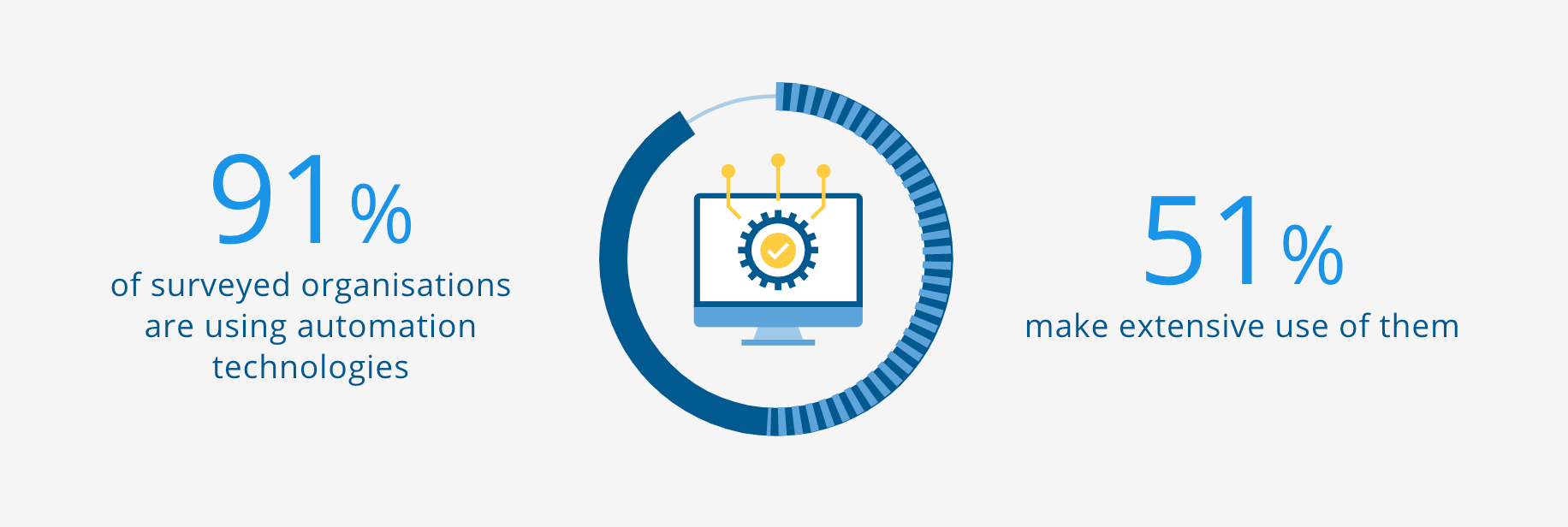Does Your Organization Need a Chief Automation Officer?

This is a guest post. Views presented in this article belong to the author.
The C-suite continues to grow, as companies appoint senior executives to oversee various aspects of the business.
In the technology area alone, a number of C-level executives have joined established positions such as the chief information officer (CIO) and chief technology officer (CTO) in recent years. These include chief compliance officer, chief analytics officer, chief data officer, chief experience officer, chief IT architect, chief knowledge officer, chief privacy officer, chief risk officer, and chief process and innovation officer.
Another of the newer members of the suite is the chief automation officer (CAO), the executives responsible for overseeing the deployment, management, and maintenance of IT process automation.
The rise of the CAO comes at a time when more businesses are implementing or advancing digital transformation efforts, and the executives who hold these positions will clearly play a major role in these endeavors.
It's the age of automation
At many organizations, automation efforts up to now have largely been under the domain of IT leaders such as CIOs. But the scope of automation within organizations has expanded to the point where a separate role is needed. It’s the age of automation. Why not have someone solely dedicated to ensuring success in this area?

Source: The Economist Intelligence Unit, Mapping the automation maturity curve
Consulting firm McKinsey & Company has noted that organizations in every region and industry are automating at least some business processes. As advances in artificial intelligence (AI), software robotics, machine learning, and innovative technology platforms allow businesses to redefine processes, workplace automation is expected to provide a significant opportunity to enhance performance and efficiency, the firm said.
Research the consulting firm has conducted shows that organizations with successful automation efforts are more likely than others to designate automation as a strategic priority.
Another consulting firm, Deloitte, says 2020 looks to be a “breakout year” for intelligent automation. Enterprises have targeted low-value opportunities for task-based automation and will increasingly look to incorporate more advanced analytical and AI technologies as part of their solutions, the firm says.
In its 5th Annual Global Robotics Survey report in 2019, Deloitte said the analysis revealed that organizations are not only continuing to use Robotic Process Automation (RPA), but are moving beyond it by increasing deployment of intelligent automation.
Analysis of the Deloitte data shows that organizations adopting intelligent automation at scale have six distinguishing characteristics:
An enterprise-wide strategy for intelligent automation
Combining RPA and AI
Technology, infrastructure, and cybersecurity in place
Mature process definitions, standards, and processes
Clear understanding of how to capture value
Radical simplification driven by a need for cost reduction
All of these efforts need to be overseen by someone, and the CAO might be in the ideal position to do so. With automation taking on such strategic importance for businesses, CAOs will be among the most vital executives in organizations.
The types of projects CAOs might oversee include RPA and other robotics, application development, natural language processing (NLP) or chatbots, blockchain, and machine learning. With technology developments advancing so rapidly, CAOs need to be up to speed on the latest industry trends and be champions for adopting any new tools and services that could bring value to their organizations with acceptable risk.
Related read: How C-Suite Leaders Are Staying Competitive With RPA
CAOs are in a position to help their companies leverage one of the hottest technologies, AI. Tools that deliver AI are seen as vital enablers of digital transformation. AI and RPA will keep getting more and more sophisticated, potentially impacting nearly every aspect of business operations and work processes.
As organizations continue to advance their digital transformation efforts, experts say more CEOs and other senior business executives will grasp the importance of deploying automation powered by AI.
Anyone looking to become a CAO needs to have certain skills, experiences, and traits. Certainly, having a strong IT and operational technology background is important, as is experience in areas such as business process management.
Dive deeper: Fire Yourself as a Head of RPA - Hire Yourself Back as a Chief Automation Officer
But it’s also important to be naturally curious about new technology developments. That means being open to learning new skills and being trained in different disciplines. A CAO who favors status quo and hesitates to change with the times will struggle to be successful.
These executives also need to be open to driving change within their organizations—even if that means disrupting the way things have been done for a long time. Automation is all about adding efficiencies, and that could result in moving people from one job role to another.
These roles will likely become increasingly important and visible as automation takes center stage at companies in all types of industries. CAOs can be among the planners, designers, and implementers of the digital transformations that are defining modern enterprises.
Organizations that don’t have a CAO in place might want to consider appointing one in order to remain competitive. Those that do have a CAO are in a better position to use automation to help reposition the business for success.

Business and technology freelance writer, Victory Business Communications
Get articles from automation experts in your inbox
SubscribeGet articles from automation experts in your inbox
Sign up today and we'll email you the newest articles every week.
Thank you for subscribing!
Thank you for subscribing! Each week, we'll send the best automation blog posts straight to your inbox.



